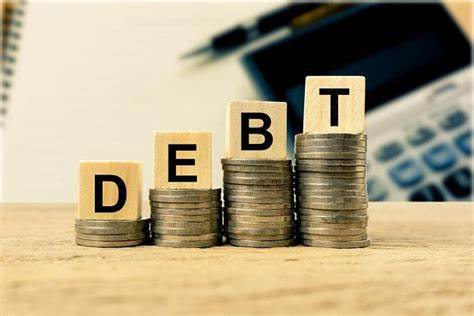
NIGERIA’S PUBLIC DEBT RISES TO N144.67TN

Nigeria’s total public debt surged to N144.67 trillion ($94.23 billion) as of December 31, 2024, marking a 48.58%increase from N97.34 trillion ($108.23 billion) recorded at the end of December 2023.
This was revealed in the latest public debt profile report released by the Debt Management Office (DMO).
The report also showed a quarter-on-quarter increase of 1.65% from N142.32 trillion ($88.89 billion) at the end of September 2024, underscoring a continued rise in the country’s debt stock in the last quarter of the year.
A year-on-year analysis indicated a rise of N47.32 trillion, driven largely by increases in both external and domestic borrowings.
External debt alone grew by 83.89%, climbing from N38.22 trillion ($42.50 billion) in December 2023 to N70.29 trillion ($45.78 billion) in December 2024.
The sharp increase was linked to fresh external loans and the depreciation of the naira, which inflated the local currency value of dollar-denominated debt.
Domestic debt also rose by 25.77 per cent from N59.12tn ($65.73bn) at the end of December 2023 to N74.38tn ($48.44bn) in December 2024.
The Federal Government’s domestic debt component grew significantly from N53.26tn to N70.41tn, reflecting a 32.19 per cent increase.
This growth indicates the government’s continued reliance on local borrowing to finance budget deficits and infrastructure projects.
In contrast, the domestic debt owed by states and the Federal Capital Territory dropped from N5.86tn to N3.97tn, representing a decline of 32.27 per cent.
This reduction points to a more cautious approach by some subnational governments towards debt accumulation during the year.
On a quarter-on-quarter basis, Nigeria’s total public debt increased by N2.35tn, translating to a 1.65 per cent rise from N142.32tn as of September 30, 2024.
The increase was driven by both external and domestic debt components. External debt rose by N1.4tn, moving from N68.89tn ($43.03bn) as of September 2024 to N70.29tn ($45.78bn) in December.
This was influenced by new foreign loans acquired in the last three months of the year, alongside the further weakening of the naira.
On the domestic front, debt rose slightly by 1.29 per cent from N73.43tn ($45.87bn) in September 2024 to N74.38tn ($48.44bn) by the end of December.
The Federal Government’s domestic debt increased from N69.22tn to N70.41tn within the quarter.
However, domestic debt attributed to states and the FCT decreased from N4.21tn to N3.97tn, reflecting a 5.69 per cent drop.
As of December 2024, Nigeria’s total public debt was almost evenly split, with external debt constituting 48.59% and domestic debt making up 51.41%, reflecting a relatively balanced debt portfolio.
However, the growing share of external borrowing suggests an increasing dependence on foreign loans to cover budget shortfalls.
A closer look at the external debt composition reveals that the Federal Government was responsible for N62.92 trillion ($40.98 billion), while the states and the Federal Capital Territory (FCT) held N7.37 trillion ($4.80 billion).
On the domestic side, the Federal Government’s debt stood at N70.41 trillion ($45.86 billion), and the states and FCT owed N3.97 trillion ($2.58 billion).
The sharp rise in public debt has sparked concerns among economic experts about the country’s fiscal health.
Particularly troubling is the surge in external debt, which exposes Nigeria to the risks of exchange rate volatility and shifts in global economic trends.
As the naira continues to depreciate, the cost of servicing foreign debt is expected to rise, putting additional strain on the nation’s financial resources.
